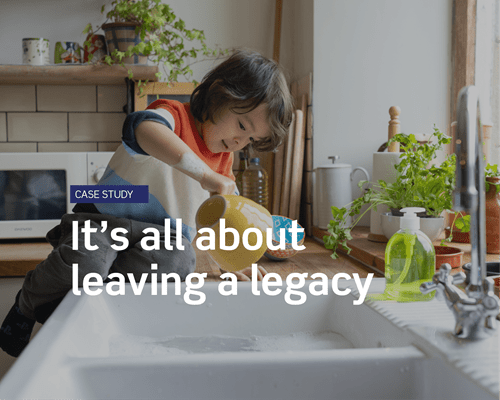 The home care industry is changing fast as consumers wake up to the possibilities of cleaning products that are safer for people, take less toll on the planet, and perform just as well as their chemical-based equivalents.
The home care industry is changing fast as consumers wake up to the possibilities of cleaning products that are safer for people, take less toll on the planet, and perform just as well as their chemical-based equivalents.
So, what does sustainable impact mean for the formulators and brands that Corbion serves in this sector? Naturally, these customers want to do the right thing, profitably. However, according to Frederik Feddes, Corbion’s Vice President of Biochemicals, it goes deeper than this: “Increasingly we see that home care customers want to leave a positive legacy on the world, and we are helping them to achieve it with our biochemical-based ingredients.”
Safer cleaning products
Take the antibacterial products used to clean children’s toys. “As we all know, youngsters have a tendency to put toys in their mouths,” says Frederik. “From a health and safety perspective, our biobased ingredients are free of biocides and other chemicals that could be toxic to children.” It’s a concern for consumers, which makes it a concern for Corbion’s customers - and indeed the regulators who oversee this sector. All of which makes it a concern for Corbion. “It’s essential that we are aligned with our customers on these kinds of topics,” says Frederik. “Replacing harsh chemicals doesn’t just help our customers leave a positive legacy, it enables Corbion to leave one too.”
Biodegradable is best
The same principle applies to another component of sustainable impact: increasing the circularity of cleaning formulations. Big brand owners are announcing that they will eliminate fossil-based and synthetic ingredients from their cleaning products by 2030. The rest of the industry will inevitably follow. Corbion’s naturally derived ingredients are not only enabling a lower carbon footprint than fossils, but they are completely biodegradable. “Ultimately, cleaning products end their life by going down the drain and into our water. If they contain anti-bacterials that cannot be broken down, they will just keep working and therefore harm the environment,” says Frederik. “So ultimately, we’re working with customers to help protect our own neighborhoods. That’s real sustainable impact.”